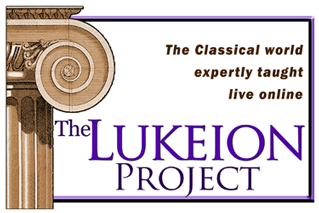Advanced Research Writing
Why Research Writing?
 Many high-school parents and secondary school programs focus on creating a transcript that will give the student every possible advantage during the college application process. While this is understandable, it is essential that today’s college-bound student look beyond the application process. Before arriving on campus, students must begin to develop the skills that will help them succeed in the college or university environment. These skills include time management, goal-setting, tenacity in the face of disappointment and fatigue, the tools and, especially the techniques of scholarly research plus how to write a research paper.
Many high-school parents and secondary school programs focus on creating a transcript that will give the student every possible advantage during the college application process. While this is understandable, it is essential that today’s college-bound student look beyond the application process. Before arriving on campus, students must begin to develop the skills that will help them succeed in the college or university environment. These skills include time management, goal-setting, tenacity in the face of disappointment and fatigue, the tools and, especially the techniques of scholarly research plus how to write a research paper.
Both the academic community and the business world value the ability to research a topic and produce a persuasive and authoritative paper based on that research. Sadly, most first year college students are unprepared for this challenge. The dreaded research paper assignment strikes fear in the heart of most college students today, and many will spend several years floundering around before they begin to discover (through trial and error) what makes a good research paper.
This course is designed to help students understand the process and product of the research writing task. This is not a beginning course for students who have never completed a research project. Students who need an introduction to research writing or additional research writing experience should complete any of our history courses and any of our mythology in Classical literature courses.
All students must have access to a college or university library to complete assignments in this course.
What will be covered?
 The goal of this class is to introduce the student to a particular type of composition: college level research writing. We will not focus on proper paragraph construction, punctuation, or other basic skills (although these will all be considered as a part of the final evaluation). We will focus on elements of research writing that differ from other sorts of writing. Class topics include:
The goal of this class is to introduce the student to a particular type of composition: college level research writing. We will not focus on proper paragraph construction, punctuation, or other basic skills (although these will all be considered as a part of the final evaluation). We will focus on elements of research writing that differ from other sorts of writing. Class topics include:
- How to develop and refine an appropriate topic
- Selection and use of appropriate scholarly sources
- Academic style and tone
- How to take effective research notes/managing source materials
- Developing a research timeline
- Use of style sheets (we will use the MLA style sheet for this course)
- Professor's expectations on college research projects
- Project management
- Using a research library
- Avoiding plagiarism
- Quotation and vitation
- Editing and revising
- Understanding professors
- The 7 Habits of HIghly Effective Teens (Sean Covey)
The instructor will also share personal insights and advice about surviving and thriving in the college/university environment.
Who are the participants?
The ideal participant is working at the junior or senior level in high school and college-bound. He or she already has composition experience (essays, reports, creative writing, or short research papers), meets deadlines, possesses good study skills, gives and accepts constructive criticism in a mature manner, and is adventurous enough to try new things.
Requirements for this semester course:
- Visit a college or university research library to complete assignments
- Write two research papers on assigned topics
- Accept constructive criticism of his/her work as a learning opportunity
- Revise his/her work based on that constructive criticism
- Review and critique the work of others in the class
- Actively participate in the online sessions
Caveat:
There will be no accommodation or extensions for participants who fail to complete assignments on time, as assigned...just like college.
Can participants devise a research paper topic or is one assigned?
This seminar simulates the requirements of the college classroom as closely as possible. We require students to write on a topic that is assigned on the first day of class for several important reasons:
- College students typically receive specific writing assignments from college professors. They don't get to write one paper and turn it in for several classes. Everyone receives the assignment at the same time; no student has an advantage or any extra time in the writing process, and no student is able to avoid the writing process by re-working a paper that's been completed for another class.
- One of the student's assignments is to do background research and refine a topic on an assigned subject, even one about which they have little knowledge. When students come with their topics already picked out, they miss this important learning experience.
- Professors teach subjects in which they are experts. For this reason, college students write papers on subjects in which their evaluators are experts. When the evaluator is not an expert in the subject matter, the paper evaluation becomes little more than an exercise in grading mechanics and writing style. At The Lukeion Project our students write on Classical World topics. This allows us to better evaluate the student's use of sources, persuasiveness of argument, inclusion of essential lines of evidence, etc.
- We ask students to anonymously critique the papers of other participants. When students write on topics in the same general subject area, each student has additional help in evaluating the work of their fellow students.


